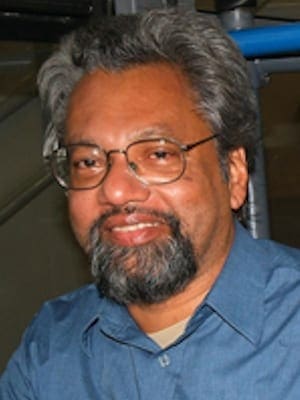After the anniversary of the bombing of Pearl Harbor, it is worth reflecting again on the question: whose history do we read?
Toward the end of the First World War, President Woodrow Wilson presented to the Congress an ambitious scheme for a new international order based on democratic government, the right of small nations to self-determination, the reduction of armaments and free trade.
Even as the U.S. was suppressing liberty in Central America and the Philippines (which they had annexed in 1898), Wilson was proudly declaring that “we are chosen, and permanently chosen, to show the way to the nations of the world how they shall walk in the paths of liberty.”
Wilson’s rousing rhetoric, leading up to the 1919 Peace Conference in Paris, was seized upon by anti-colonial nationalist leaders from Egypt to China.
Despite some glaring faults, Pankaj Mishra’s latest book, “From the Ruins of Empire,” deftly portrays the hypocrisies and brutalities of colonial rule and the responses of subjugated Asian and North African intellectuals.
Mishra chronicles how their hopes were dashed when Wilson (who was, for a brief moment, the most admired politician all over the world) caved in to cynical imperialists, such as the British Prime Minister Lloyd George and Clemenceau of France.
Britain and France had dispatched hundreds of thousands of artisans and soldiers from all over their colonial empires to their battlefields in Europe, with vague promises of self-rule if victorious.
After the war, both nations promptly forgot their promises.
Mishra tells us how racist slurs and jokes by Western powers marred the discussions about the constitution of the proposed League of Nations, with many Asian and African nations barred representation at the conference.
Even the Japanese, an Asian imperial power on par with the Europeans, and who arrived in Paris seeking an end to trade restriction on Japanese imports in French Indochina and an end to discrimination against Japanese immigrants in California, were humiliated by being given a seat at the far end of the table, next to Ecuador and Guatemala.
The British manipulated Wilson, who was an Anglophile himself and surrounded by advisers drawn mainly from the East Coast WASP elites.
They persuaded him to support British rule in Egypt and informed him that even poets like Rabindranath Tagore were dangerous firebrands.
Among the people disillusioned by Wilson was a young Vietnamese man living in Paris, Ho Chi Minh, then known as Nguyen Ai Quoc.
He was a poor menial worker in Paris when Wilson arrived with his bold plans for a new international order of self-governing states.
He rented a morning suit and sought a personal audience with Wilson, “carefully quoting from the United States Declaration of Independence in his petition.” He was allowed nowhere near Wilson or any other Western leader.
Like so many other anti-colonial thinkers and activists, Ho was then attracted by Lenin’s 1916 pamphlet, which asserted that the U.S. was no less an imperial power than Britain, France or Japan, greedy for resources, territory and markets, and that it was the inherent instability of the global capitalist system that had caused the Great War.
1919 was a crucial year for many nations struggling to be freed from colonialism. Ho Chi Minh joined the French Communist Party in 1921. “It was patriotism, not Communism,” he later recalled, “which had prompted me to believe in Lenin.”
In India, the 29-year-old Jawaharlal Nehru wrote of how the “Wilsonian moment” had passed, and “for ourselves it is again the distant hope that must inspire us, not the immediate breathless looking for deliverance.”
A 25-year-old Chinese journalist by the name of Mao Zedong lamented, “So much for national self-determination, I think it’s really shameless!”
He wrote to his friends in France to say that he was through with all other ideas save “the Russian Revolution,” which was the only way to liberate China. Two years later, the Chinese Communist Party was birthed in Shanghai.
Mao later recalled: “The whole of the Chinese revolutionary movement found its origin in the action of young students and intellectuals who had been awakened.”
We know how Germany took its revenge on Britain and France two decades later, having been utterly humiliated at the Paris conference of 1919 and excluded from the League of Nations.
And Ho Chi Minh not only drove the French out of Indochina but inflicted on the United States the most humiliating military defeat in its history.
Over 50,000 Americans lost their lives, not to mention numberless Vietnamese and Laotians, because of Wilson’s decision to ignore the humble petition of a Vietnamese migrant worker.
One of the unofficial Chinese representatives to Paris, Liang Qichao, wrote back home that “China’s only crime” had been “her weakness and her belief in international justice after the war. If driven to desperation, she attempts something hopeless, those who have helped to decide her fate cannot escape a part of the responsibility.”
If the next generation of Maos, Hos, Osamas and Castros are being formed today in Gaza, the West Bank, northwest Pakistan, the Congo or northern Sri Lanka, who bears responsibility?
And whose stories will be told in the global media in 2019, when the world “remembers” 1919?
Vinoth Ramachandra is secretary for dialogue and social engagement for the International Fellowship of Evangelical Students. He lives in Sri Lanka. This column first appeared on his blog.
Secretary for dialogue and social engagement for the International Fellowship of Evangelical Students. He lives in Sri Lanka.

